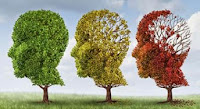WASHINGTON – Using marijuana raises the vascular risks of stroke and heart failure, major risk factors leading to vascular dementia. Even after accounting for demographic factors, other health conditions and lifestyle risk factors such as smoking and alcohol use, the data is compelling, according to research being presented at the American College of Cardiology’s 66th Annual Scientific Session.
Vascular Health
Coming at a time when marijuana, medically known as cannabis, is on track to become legal for medical or recreational use in more than half of U.S. states, this study sheds new light on how the drug affects vascular health. While previous marijuana research has focused mostly on pulmonary and psychiatric complications, the new study is one of only a handful to investigate cardiovascular outcomes.
“Like all other drugs, whether they’re prescribed or not prescribed, we want to know the effects and side effects of this drug,” said Aditi Kalla, MD, Cardiology Fellow at the Einstein Medical Center in Philadelphia and the study’s lead author. “It’s important for physicians to know these effects so we can better educate patients, such as those who are inquiring about the safety of cannabis or even asking for a prescription for cannabis.”
Nationwide Inpatient Sample
The study drew data from the Nationwide Inpatient Sample, which includes the health records of patients admitted at more than 1,000 hospitals comprising about 20 percent of U.S. medical centers. Researchers extracted records from young and middle-aged patients—age 18-55 years—who were discharged from hospitals in 2009 and 2010, when marijuana use was illegal in most states.
Marijuana use was diagnosed in about 1.5 percent (316,000) of more than 20 million health records included in the analysis. Comparing cardiovascular disease rates in these patients to disease rates in patients not reporting marijuana use, researchers found marijuana use was associated with a significantly increased risk for cardiovascular events such as stroke, heart failure, coronary artery disease and sudden cardiac death.
Marijuana – Independent Association
Marijuana use was also linked with a variety of factors known to increase cardiovascular risk, such as obesity, high blood pressure, smoking and alcohol use. After researchers adjusted the analysis to account for these factors, marijuana use was independently associated with a 26 percent increase in the risk of stroke and a 10 percent increase in the risk of developing heart failure.
“Even when we corrected for known risk factors, we still found a higher rate of both stroke and heart failure in these patients, so that leads us to believe that there is something else going on besides just obesity or diet-related cardiovascular side effects,” Kalla said. “More research will be needed to understand the pathophysiology behind this effect.”
Heart Cells Have Canabis Receptors
Research in cell cultures shows that heart muscle cells have cannabis receptors relevant to contractility, or squeezing ability, suggesting that those receptors might be one mechanism through which marijuana use could affect the cardiovascular system. It is possible that other compounds could be developed to counteract that mechanism and reduce cardiovascular risk, Kalla said.
Because the study was based on hospital discharge records, the findings may not be reflective of the general population. The study was also limited by the researchers’ inability to account for quantity or frequency of marijuana use, purpose of use (recreational or medical), or delivery mechanism (smoking or ingestion).
Further Insights
Kalla suggested that the growing trend toward legalization of marijuana could mean that patients and doctors will become more comfortable speaking openly about marijuana use, which could allow for better data collection and further insights into the drug’s effects and side effects.












If this association between cannabis and vascular dementia is real, it is SMOKED cannabis. Smoking more that a bit of anything is not a good idea. How about vaporizing, or edibles?
9/23/18 my husband Rip.💖 Love, passed away February 8th, 2018, in Hospice care, he had vascular dementia, 1/29/18 had a silent heart attack, 100 % blockage replaced his stent on the left side of the chest, I don't understand why the cardiologist, did surgery, never contacting his primary cardiologist, who did my husbands original heart stents in 2008, 😠 my husband had Dnr, i was his poa, I believe that the surgery was unnecessary, the dr knew he was gonna die.He was in a drug induced coma, on FENTANYL, and ATIVAN drip blood thinner wasn't allowed to have it or ATIVAN 😠 was on life support too, against his wishes, we had a meeting, the dr ssid he needed angiogram which he was allergic to IVP,DYES, I believe that the drugs killed him, he littery,bled to death, wasn't supposed to be on blood thinners, he was diabetic, and heart disease too. From that day, I list all faith in Drs, hospitals and nursing homes, and medications. Which all have side effects, 😕 cannibas,never discussed. And was against it anyway, but drugs, are just $$ to drs. And Pharmaceutical companies. Dr know nothing about the side effects, only patients can tell them, how they feel after taking the medications, He refused to take them after getting so ill, August of 2017, he got flesh eating bacterial infection wound, in the left groin, after a month on INVOKANA 😠 required 2 surgeries, and 3 weeks infectious disease dr. 2 months in nursing home 😕
A lot of valuable information in that for sure sounds like the hospital made a lot of errors they use the fentenol too much i think. Sombody ran it through the fda too quickly.Fentenol was not properly researched.id start calling lawyers.you lost a big chunk of your being. Someone needs to pay.
So its not safe, to take the canabis? Its not safe that the 21 pills my husband is to TAKE, since diagnosis normal pressure hydrocephalus, 2014,neurologist said 😕
Kathy, it is JUST like those 21 pills. Drugs are, as a general rule, NOT safe, but if they can fix something, we take a calculated risk by using them.
I hear your sarcasm. Realize where it comes from. Had I said, "Aricept and donepezil for Alzheimer's have cardiac side affects", which they do, no one would have thought that worth objecting to. But criticizing cannabis always creates a stir. It's not because it is a bad drug. It is because people want to take it for fun and fool themselves into thinking it is not a drug and there is no price to pay.
As for NPH, get a good neurosurgeon who knows how to release the pressure. As for pot, just another escape mechanism/excuse for those who need a quick fix or can’t cope. Good luck as it changes your neuro pathways involving impulse control and logic.
No controlled study here. Just personal thoughts…Angers me that you put this out to the masses as FACT.
Excuse me? Did you say, "Just personal thoughts…"?
"… the health records of patients admitted at more than 1,000 hospitals comprising about 20 percent of U.S. medical centers."
Were you taking this stuff as you wrote your comment?
Exactly Neal! Cardiovascular disease is pretty low on my worry list when caring for someone who doesn't want to take the 32 prescribed pills by neurologists.
I would imagine that being shunned by mainstream society and hunted down, threatened with long term imprisonment, and perhaps being rejected by your own family might have some effects on one's stress level, and in turn cardiovascular outcomes. But there is no funding for such thoughts, I suppose.